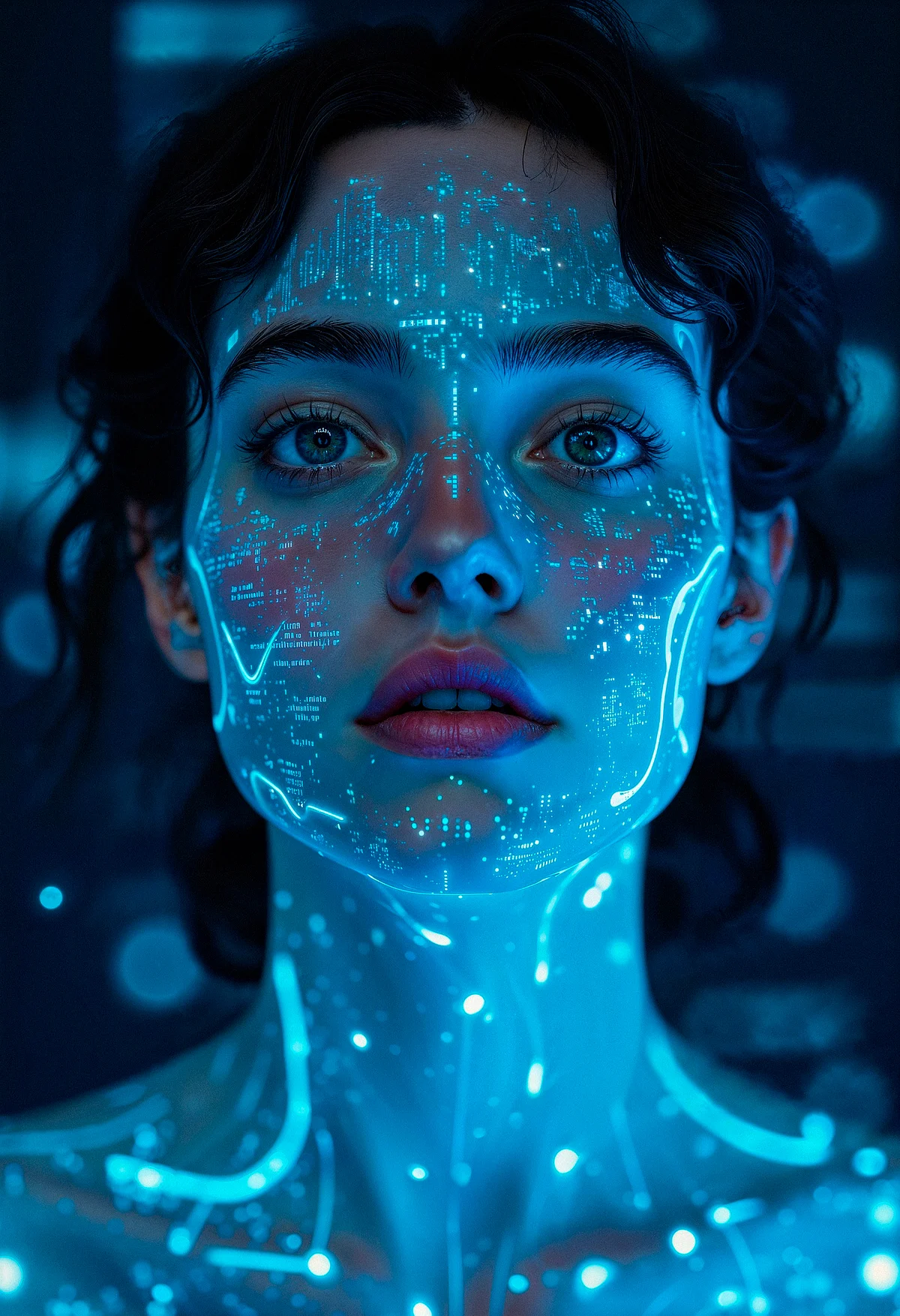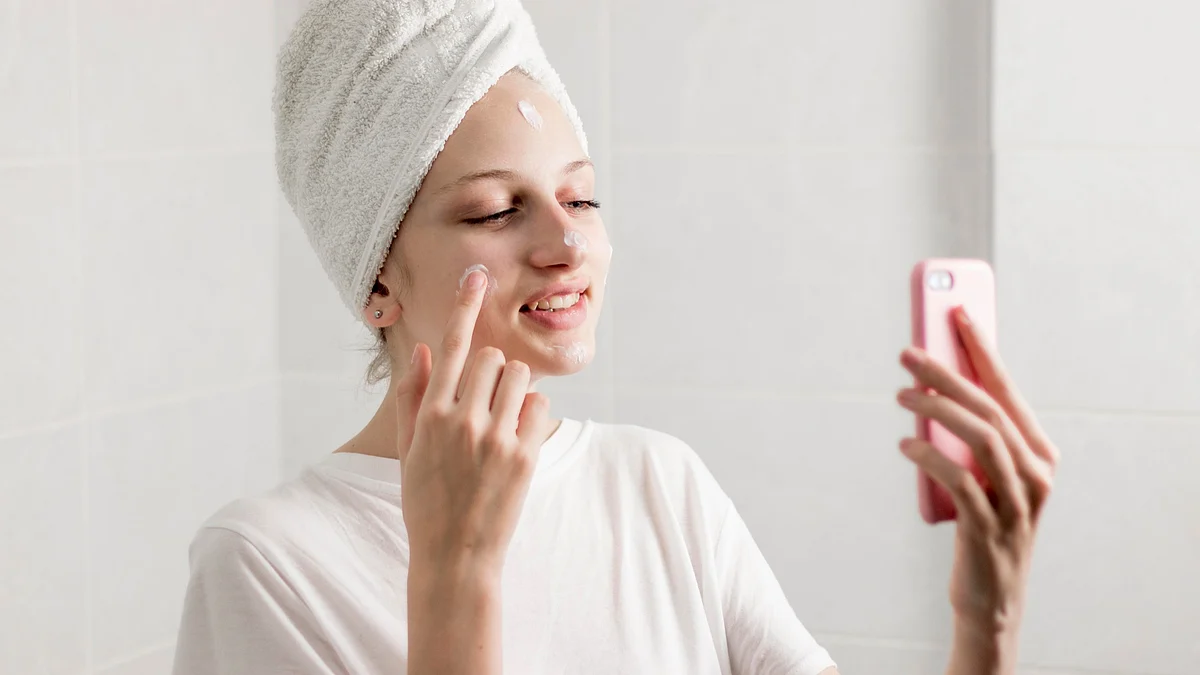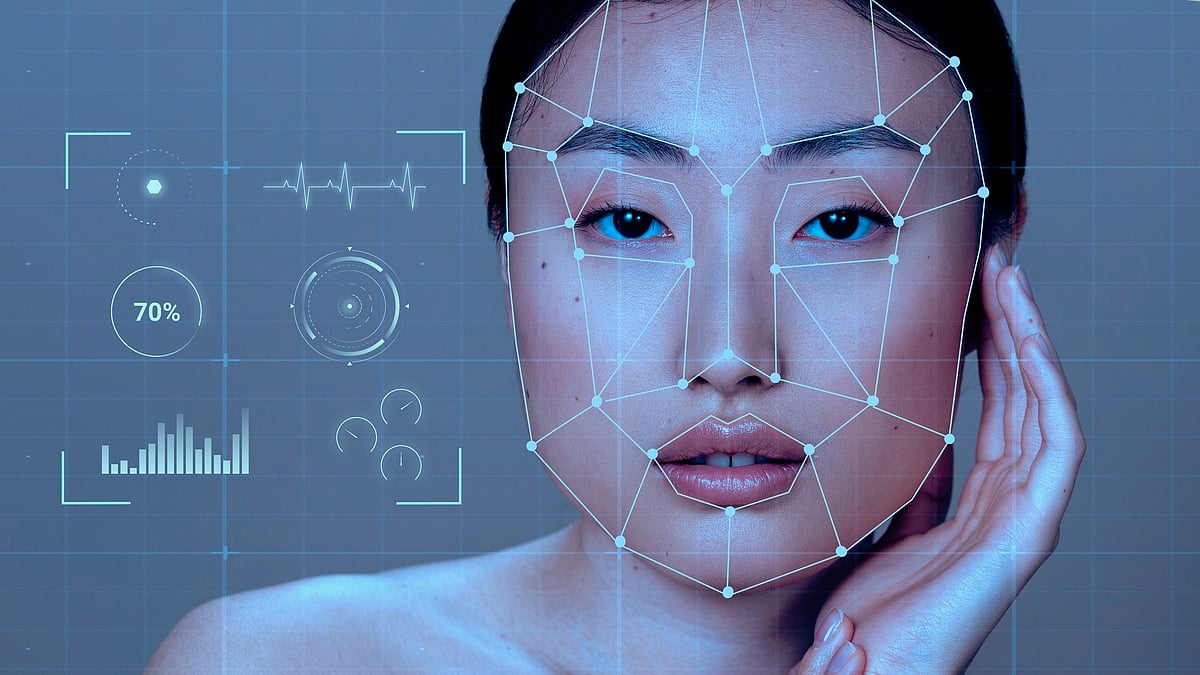Beauty has always been an intimate affair. From the first bar of soap your mother handed you to the luxury serum you now reach for after a long workday, beauty rituals have long been shaped by tradition, instinct, and a fair amount of trial and error. Today, whether you’re browsing Sephora for a new foundation or shopping online for shampoo, chances are you have encountered some form of artificial intelligence (AI). A five-question quiz that recommends the best moisturiser for your skin type? A device that scans your complexion to match you with the perfect concealer? All of these are AI. But as sleek and innovative as these tools may seem, many of these ‘AI-powered’ solutions are now entering some of our most personal spaces.
We’re now in a world where a computer algorithm, backed by machine learning and your selfies, might know more about your skin than yourself. And that’s both thrilling and terrifying. But here’s the question: should you let it?
AI In beauty

Freepik Image
AI shows up in many different ways—from interactive quizzes that recommend products to voice-enabled beauty assistants—making it harder to pin down and fully grasp how it works. However, it is generative AI—a fast-evolving technology with applications across text, code, speech, and images—that is at the centre of all the buzz right now. According to McKinsey, generative AI (Gen AI) could add an estimated $9–10 billion in value to the beauty sector by 2025, driving a 1.4–2.3% revenue boost across skincare, makeup, haircare, and fragrance.
The report says that the gap between industry leaders and laggards in the beauty sector is only set to widen as generative AI advances. The fast will get faster, more agile, more intuitive, and better equipped to anticipate and deliver on consumer desires. Meanwhile, those slow to adapt may struggle to retain even a sliver of market share. Beauty brands that prioritise high-impact use cases and tailor generative AI to their specific needs stand the best chance of unlocking its full potential.
"Personalisation has long been the holy grail of beauty," says Delhi-based dermatologist, Dr. Shalini Bannerjee. "What’s exciting—and slightly unnerving—is how AI can scale that personalisation to the masses. It’s no longer just luxury brands offering bespoke solutions. It's available at your fingertips."
Take Noli, for example—a London-based AI skincare startup backed by beauty behemoth L'Oréal. Noli’s process is elegantly simple. A brief Q&A, a photo of your face, and a proprietary algorithm analyse over 100 million possible skincare combinations to determine what’s best for you. Not just your skin type (dry, oily, combination), but how your genetics, climate, and lifestyle interplay with your skin’s real-time condition.
On the other hand, DNA skincare is redefining the beauty playbook by crafting a skincare routine tailored specifically to your unique genetic blueprint. By analysing DNA markers linked to ageing, hydration, sensitivity, and collagen production, this technology removes the guesswork, helping you invest in products that your skin needs.
In India, MapMyGenome’s BeautyMap is at the forefront of this personalised approach, offering DNA-based insights into concerns like acne, hyperpigmentation, and hair loss. The process begins with a simple at-home saliva collection kit. Once your sample is submitted, it's analysed in a high-tech lab to reveal the genetic traits influencing your skin’s behaviour. The result? A detailed report outlining your skin’s unique characteristics, potential issues, and targeted solutions. Alongside this, BeautyMap provides personalised recommendations—from skincare ingredients to nutrition and lifestyle adjustments—designed to help you glow from the inside out.
At its best, AI in beauty eliminates the guesswork. It’s an approach that resonates with Gen Z and millennials, two demographics that value authenticity, transparency, and customisation. According to a 2024 McKinsey report, over 68% of Gen Z consumers are open to using tech-driven skincare diagnostics, while 47% trust algorithmic recommendations over beauty store consultants.
Can data feel?
Yet, for all its clinical brilliance, AI has limitations—especially when applied to something as subjective and emotional as skincare. More importantly, there are concerns about accuracy, bias, and data privacy. AI models are only as good as the data they’re trained on. If the training data lacks diversity—in terms of skin tones, ethnicities, or medical histories—the recommendations may miss the mark, or worse, cause harm. And then there's the data question. Uploading selfies and personal skin data opens up a minefield of privacy concerns. Who owns this information? Can it be used for marketing, sold to third parties, or used to build more advanced tech?
According to McKinsey’s 2024 AI adoption survey, 51% of beauty consumers are concerned about how their data is used, particularly those uploading biometric inputs like photos or DNA swabs. Beyond privacy, biased data collection can reinforce systemic exclusion. If an algorithm is trained predominantly on lighter skin tones or Eurocentric facial features, it may misdiagnose skin concerns.
The final category—AI-washing—refers to brands that throw around the term ‘AI’ as a buzzword to capture consumer attention, without offering any real substance behind the claim. In the beauty world, this could mean charging a premium for so-called ‘AI-powered personalisation’. Take, for instance, a skincare app that claims to use AI but simply asks you to choose your skin type from a list. Most consumers fail to distinguish between genuine AI and simple automation. The danger of AI-washing lies in its potential to erode consumer trust. When people realise they’ve been misled by inflated claims, it can create scepticism towards AI in beauty as a whole.
Another major concern is over-reliance—people may begin to depend too heavily on AI, diminishing their decision-making skills and stifling creativity and personal expression. There’s also the risk of job displacement, as AI-driven automation could reduce the demand for beauty professionals such as makeup artists and skincare consultants. Additionally, AI can’t replicate the tactile, in-store experience where customers test, feel, and connect with products firsthand. Relying solely on digital recommendations may strip away the personal, hands-on touch that many beauty lovers cherish.
AI v/s experts

Freepik Image
So, should dermatologists feel threatened? Not quite. “Think of AI as an intern, not the doctor,” says Dr. Shalini. “It can sift through massive data sets, look for patterns, and suggest hypotheses. But it doesn’t have the lived experience, the clinical instinct, or the empathy that a human expert brings.”
Some dermatologists are embracing AI as a diagnostic aid. Tools like SkinVision or MoleScope enable patients to monitor changes in moles or skin texture and alert their doctor if anything appears abnormal. For doctors, this translates to better monitoring and early detection of skin conditions like melanoma.“In the future, AI could help reduce dermatology wait times, triage minor issues, and assist in early diagnoses,” she adds. “But it shouldn’t be the only voice.”
Perhaps the future of skincare isn’t a choice between AI and humans, but a harmonious blend of both. Picture this: You wake up and snap a selfie. Your AI assistant tells you your skin is a little dehydrated today due to last night’s wine. It suggests swapping your serum for one that is rich in hyaluronic acid. Brands are paying attention. L’Oréal’s Perso device 3D prints your daily moisturiser or foundation at home based on environmental data and your current skin status.
While AI can help demystify ingredients, diagnose underlying concerns, and even build custom routines, it can’t replace the joy of browsing a beauty aisle, the sensuality of textures, or the comfort of a favourite cream that reminds you of home. The question isn’t whether AI will be part of your skincare journey. The question is: how much of it will you let in?
